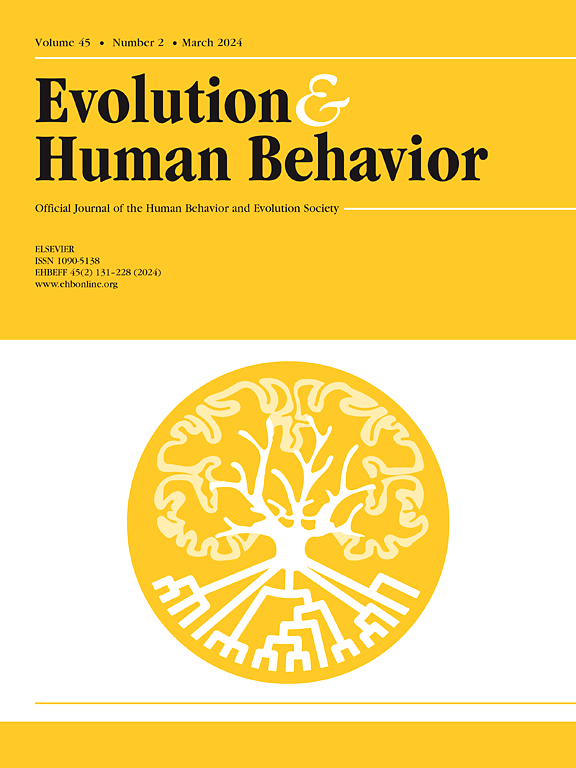Owing others: debt, welfare tradeoffs, and the social emotions
IF 3.2
1区 心理学
Q1 BEHAVIORAL SCIENCES
引用次数: 0
Abstract
Borrowing money – whether from informal or formal sources – is a common and fundamental aspect of our economic lives. Although evidence shows that people can exhibit strong emotional reactions to monetary debt, and that these emotions relate to their borrowing decisions, not much is known about which emotions are triggered and why. Here, we use the framework of social emotions to suggest that: (i) social emotions, in particular guilt, gratitude, and indebtedness, emerge in the context of borrowing in response to information about the costs to the lender and the benefits to the borrower, and the Welfare Tradeoff Ratios (WTRs) of both actors, (ii) varying WTRs in debt scenarios elicit the emotional responses predicted by the social emotions framework, and (iii) social emotions are related to borrowing decisions in hypothetical scenarios. We examine the role of social emotions in borrowing in three online studies with U.S. participants. Study 1 (N = 268) shows that social emotions emerge consistently in borrowing scenarios and respond to welfare tradeoffs. Study 2 (N = 190) suggests that the emotion of indebtedness can arise either from increases in guilt or in gratitude. Study 3 (N = 150) shows that people are willing to impose extra costs on themselves when making borrowing choices, presumably to decrease negative emotions. Taken together, the studies suggest that using the social emotions framework helps make sense of emotional responses to debt, and could further our understanding of borrowing and repayment decisions.
欠他人:债务、福利权衡和社会情感
借钱——无论是从非正式的还是正式的渠道——是我们经济生活中一个普遍而基本的方面。尽管有证据表明,人们对货币债务会表现出强烈的情绪反应,而且这些情绪与他们的借贷决定有关,但人们对哪些情绪会被触发以及为什么会被触发知之甚少。在这里,我们使用社会情感的框架来提出:(1)社会情绪,特别是内疚、感激和负债,在借贷的背景下出现,以回应有关贷款人的成本和借款人的利益的信息,以及双方行为者的福利权衡比率(WTRs);(2)债务情景中不同的WTRs引发了社会情绪框架预测的情绪反应;(3)社会情绪与假设情景中的借贷决策有关。我们在美国参与者的三个在线研究中考察了社会情绪在借贷中的作用。研究1 (N = 268)表明,社会情绪在借贷情境中持续出现,并对福利权衡做出反应。研究2 (N = 190)表明,负债情绪可能来自罪恶感的增加或感激之情的增加。研究3 (N = 150)表明,人们在做出借贷选择时愿意给自己施加额外的成本,可能是为了减少负面情绪。综上所述,这些研究表明,使用社会情绪框架有助于理解对债务的情绪反应,并可以进一步理解借款和还款决策。
本文章由计算机程序翻译,如有差异,请以英文原文为准。
求助全文
约1分钟内获得全文
求助全文
来源期刊

Evolution and Human Behavior
生物-行为科学
CiteScore
8.30
自引率
9.80%
发文量
62
审稿时长
82 days
期刊介绍:
Evolution and Human Behavior is an interdisciplinary journal, presenting research reports and theory in which evolutionary perspectives are brought to bear on the study of human behavior. It is primarily a scientific journal, but submissions from scholars in the humanities are also encouraged. Papers reporting on theoretical and empirical work on other species will be welcome if their relevance to the human animal is apparent.
 求助内容:
求助内容: 应助结果提醒方式:
应助结果提醒方式:


